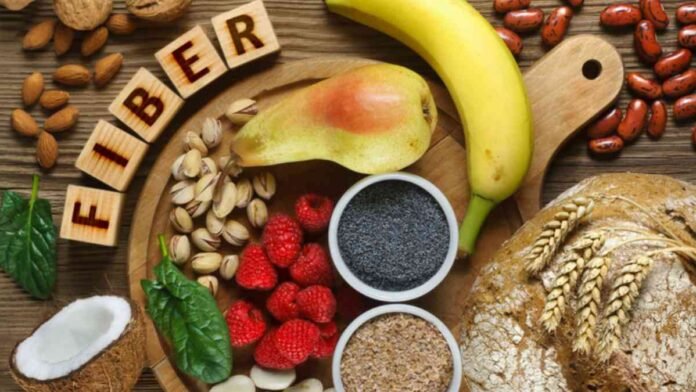A balanced diet must include dietary fiber, as it is vital for maintaining general health and well-being. Despite its importance many people’s daily diets do not provide enough fiber. By understanding the benefits of dietary fiber and knowing which foods are high in it you can make better dietary choices and enhance your health.
Benefits of Dietary Fiber
- Digestive Health: To prevent constipation and encourage regular bowel movements, fiber adds bulk to stool and facilitates its passage through the digestive tract. Additionally, it reduces the risk of hemorrhoids and diverticulitis.
- Weight Management: High-fiber foods are more satisfying and can help regulate appetite while lowering overall calorie intake. This is beneficial for weight control and preventing obesity.
- Blood Sugar Control: Soluble fiber in particular helps maintain steady blood sugar levels by slowing the absorption of sugar. This is especially important for individuals with diabetes or those at risk of developing it.
- Heart Health: A diet high in fiber can help reduce cholesterol levels by binding to and removing cholesterol particles from the body. This lowers the risk of stroke and heart disease.
- Gut Health: Fiber acts as a prebiotic feeding beneficial gut bacteria. A healthy gut flora is associated with a better immune response and reduced inflammation.
High-Fiber Foods
Including a variety of fiber-rich foods in your diet is essential for reaping the benefits of dietary fiber. Here are some top sources:
- Fruits: Bananas, pears, apples, strawberries, oranges, and berries (blackberries, raspberries) are high in fiber.
- Vegetables: Fiber-rich vegetables include broccoli, carrots, Brussels sprouts, sweet potatoes, and leafy greens like kale and spinach.
- Legumes: Beans (black beans, kidney beans, lentils), chickpeas, and peas are rich in both soluble and insoluble fiber.
- Whole Grains: High-fiber whole grains can be found in oats, brown rice, quinoa, barley, and whole wheat products such as cereal, pasta, and bread.
- Nuts and Seeds: Almonds, chia seeds, flaxseeds, and sunflower seeds are high in fiber and easy to add to various recipes.
- Other Sources: Increase your fiber intake with foods like popcorn, avocados, and high-fiber cereals.
Conclusion
Including fiber in your diet is crucial for maintaining your health. Understanding which foods are high in fiber and their benefits will help you make informed dietary choices that improve digestion support healthy weight management and reduce the risk of chronic diseases. Incorporate a variety of high-fiber foods into your meals to enjoy these health benefits and enhance overall well-being.



